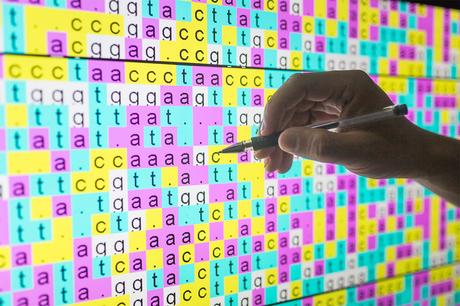
Analysing a person's DNA used to be a long, difficult and expensive process - reserved for police investigations and high-tech labs. But with recent advances in technology, it's now possible for anyone to produce a sample at home and send it off for testing for as little as £100. As a result, home DNA testing has become extremely popular. But is the process scientifically sound and are the results reliable? Read on to find out.
It depends on who does the testing
The market has become flooded with DNA testing companies, and not all of them are reliable. To make sure you get an accurate result, it's important that you choose an accredited testing lab.
In the UK, UKAS is a widely used and trusted accreditation body. Look out for their logo, along with the ISO 9001 quality management mark and the ISO 17025 mark (which applies specifically to testing and calibration laboratories).
Don't be tempted by unaccredited companies that offer lower prices. You run the risk of poor business practices, contaminated samples and dodgy results!
It also depends on the type of test you ask for
Generally speaking, there are two main types of DNA test - a quick & easy "peace of mind" test, and a slightly more expensive "legal test". The scientific process is the same with both types of test, but the way the samples are collected is different.
With a peace of mind test you and the other people involved are trusted to take the DNA samples by yourself - usually by taking a cheek swab. You then pop them in the post and wait for the results. The results will be accurate as long as the samples were collected correctly and not tampered with. This kind of test can be used to establish the paternity of a child or the relationship between two people, but the results will not hold up in court.
With a legal test the DNA samples are collected by a professional sample collector or a doctor. They are then transported to the testing lab under a controlled and recorded chain of custody. This guarantees that the right samples belong to the right people, and the results can be used to settle legal disputes - such as child maintenance, immigration matters and so on.
The science doesn't lie, but sometimes the people do! If it's important, get a legal DNA test.
Why do companies advertise results as 99% accurate? Why can't they be 100%?
When you order a DNA test, there are two possible outcomes:
- There is a 0% chance that the two people are related
- There is a 99.9% chance that they are related
So why is does that margin of error exist? Why can't it be 100% certain? Well, it's not because the testing process is inaccurate or unreliable. It's because your DNA contains a random selection of genes inherited from both parents, and there is a very - VERY - small possibility that you and a complete stranger could share the same DNA profile just by sheer chance. The odds are astronomically slim, but they're not zero. That's why a DNA company can only be 99.99% certain that two people are related (although that's still enough to convince a court).
How do I order a DNA test?
If you are in the UK, you can go on the government website to view a list of accredited testing labs. If you are based in the United States, AlphaBiolabs USA offers peace of mind DNA testing throughout the country.
Remember that everyone involved will need to give their consent and sign a consent form. Think long and hard about whether you want to do a test, as the results can often has life-changing consequences.
